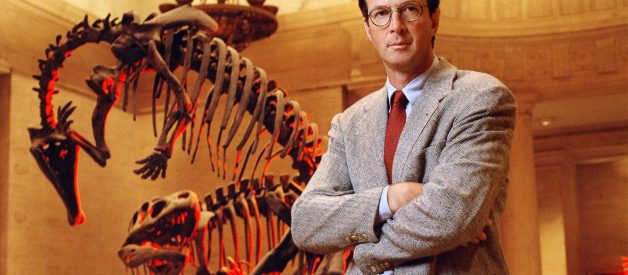A Memorial to the Inventor of the Technothriller, Published on the 10-Year Anniversary of His Death, and A Rundown of His Novels From Worst to Best
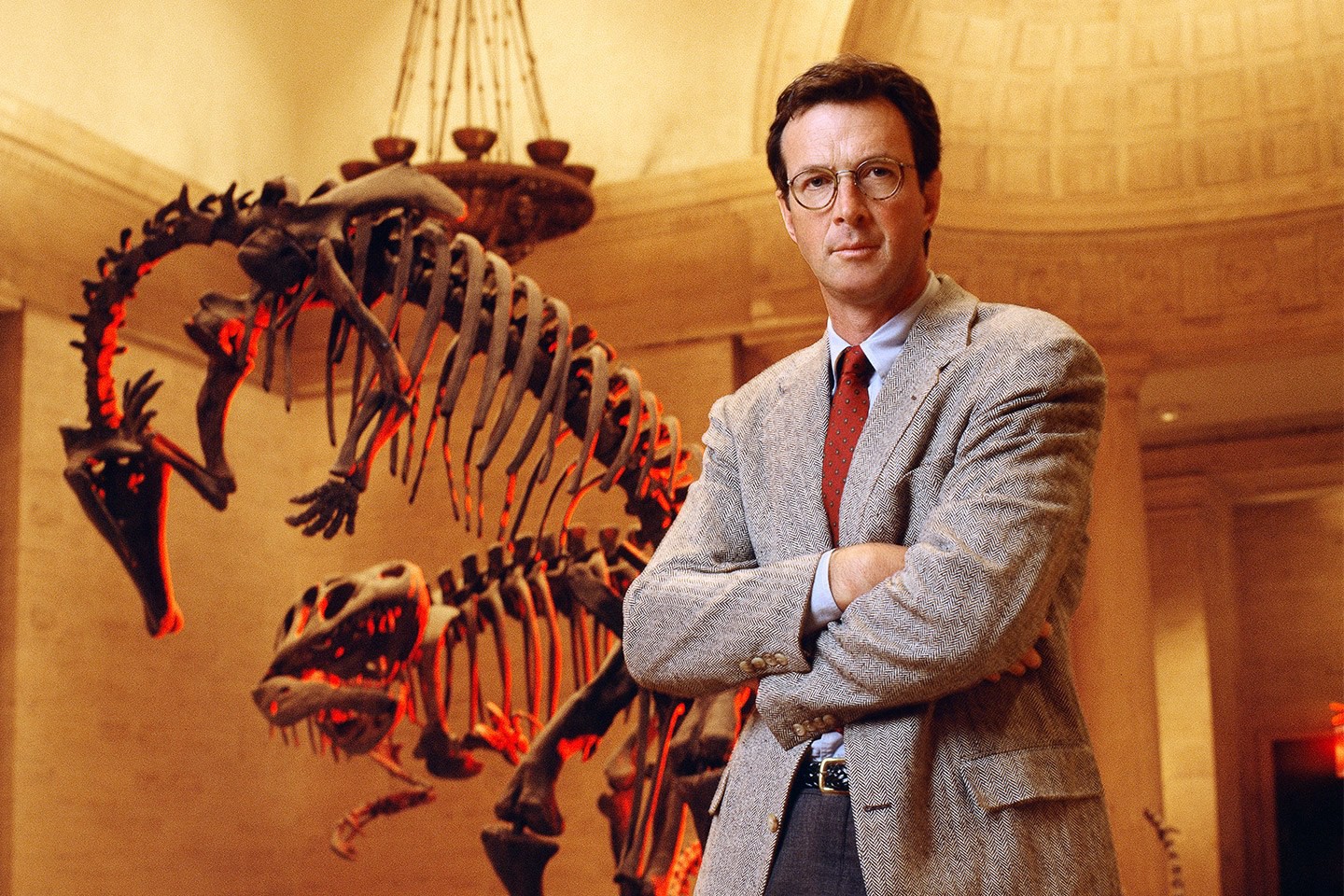 Michael Crichton, one of the bestselling authors of the 1990s, died on November 4, 2008 at age 66.
Michael Crichton, one of the bestselling authors of the 1990s, died on November 4, 2008 at age 66.
I was 15 when Jurassic Park was published. My dad bought a copy in hardback the week it came out.
I had to wait for him to finish reading it before I could start. I expected him to take about a week to go through it.
He usually took about a week to read through a popular thriller.
But like many millions of readers in 1990, my dad got so engrossed in Crichton?s outrageous world of genetically resurrected dinosaurs that he blew off chores and social obligations and whatever else might get in the way and plowed through to the final page in under two days.
He finished the novel on a Saturday night after I went to bed. When I woke up the next morning I found it on my bedroom desk.
I started reading immediately and didn?t stop until I was done. It was a brilliant one-day frenzy of fun, one of my favorite reading experiences ever, one of those moments that happens in your teen years where something significant is happening that is altering your life course and you don?t even know it.
After Jurassic Park I had a period of about a year where Crichton was the only author I read. Those of us who discovered Crichton in 1990 stumbled into an already deep and surprisingly rich catalog of technothrillers, historical adventures, and even a bit of fantasy. Crichton was an author who wrote whatever tickled his fancy without today?s insistence that an author stay in one lane and build a specific brand.
Crichton was a polymath of the kind we don?t really see in the entertainment industry anymore. He graduated from Harvard Medical School and was in the midst of clinical rotations at Boston City Hospital when his writing career took off, and he was just getting established as a novelist when his career in Hollywood took off.
In addition to being the fourth bestselling author of the 1990s (John Grisham, Stephen King, and Danielle Steele are 1, 2, and 3) he was also the creator and producer of the one of the most popular TV shows of the decade (The Emergency Room drama ER) and the director of multiple movies including the original Westworld.
It would be fun to delve into all of Crichton?s creations (I have a personal fondness for a strange neuroscience thriller he directed in 1981 titled Looker) but in this piece I?m going to focus on the novels, and only the novels he published under his name. I won?t look at the novel Micro (which was unfinished at the time of Crichton?s death and had an ending written by Richard Preston), or any of the novels Crichton published under pen names.
Even excluding all that material, we still have 17 novels to rank, a diverse set of books that includes a couple clunkers in the lower ranks and some of the most influential novels of all-time near the top.
Here?s the list.
17. State of Fear (2004)
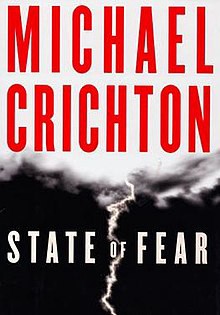
The only Crichton novel I can honestly say I didn?t like, this novel about eco-terrorists is built on a terrorist plot so far-fetched I never believed a word of it. This one is the rare Crichton technothriller where the science digressions are much more interesting than the story (usually it?s the reverse). Crichton?s political message in this novel that environmentalism must belong to scientists and conservationists, and not religious zealots, is compelling, but the plot of this story was contrived and clumsy, almost a parody of the tightly wound thrillers Crichton became famous for.
If you?re into climate, complex systems, and computer modeling, or you?re a Crichton completionist, you might find value in this one, but everyone else should skip it.
16. The Lost World (1995)
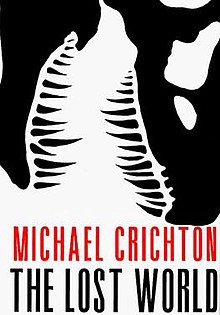
Fast-paced but ultimately disappointing, this one was written on a tight timeline to capitalize on the success of Jurassic Park. Though the action is sometimes fun, The Lost World was clearly constructed by the author with intent to immediately turn it into a screenplay and the writing is thin. The plot, the characters, and the science are all just faded copies of this novel?s far superior predecessor. If you?re going to read all of Crichton, put this one near the bottom.
15. Next (2009)
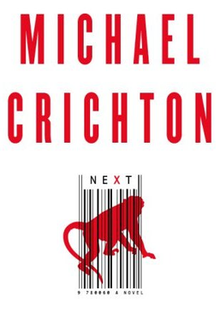
The most satirical of Crichton?s novels, Next is a playful and weird examination of the ethics of genetic engineering. It?s not structured like Crichton?s typical stories; it?s intertwining plots feel more like an anthology than a densely plotted thriller. The pulse-pounding plot we expect from Crichton never really gets going here, but some of the weird genetic aberrations explored are darkly humorous. In this one I?ll say that I admire that Crichton was trying something different, but it had none of the magic of the stuff he does best, and mostly missed the mark.
14. Pirate Latitudes (2009)
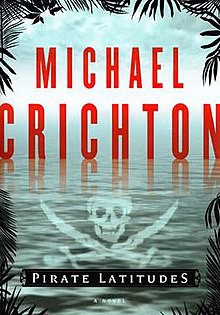
Published posthumously, this 17th century pirate adventure is a fun romp with interesting digressions into the economics and tactics of Caribbean piracy. The novel is unpolished relative to Crichton?s other work (to be expected in an unpublished manuscripts found in a deceased author?s belongings). It?s a shame Crichton didn?t get a chance to work this into whatever his final vision of it might have been.
13. Eaters of the Dead (1976)
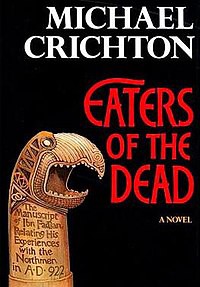
10th Century Vikings versus scary ?Mist Monsters? in a contemporary retelling of Beowulf. Eaters of the Dead is a marvelous idea for a story that is executed pretty well, if immaturely in comparison to Crichton?s later work. This is the first novel on the list that I would recommend to any thriller reader, not just hardcore Crichton fans. This one was adapted into the 1999 movie The Thirteenth Warrior with Antonio Banderas, a movie that had a troubled production and never would have seen the light of day had Crichton himself not come in at the last minute to direct a series of reshoots.
12. Dragon Teeth (2017)
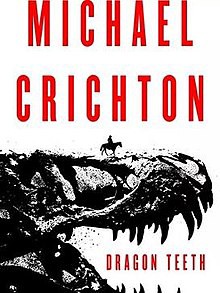
Another posthumously published novel, Crichton was apparently working on this one on and off for 15 years and had it close to publication when he died in 2008. Dragon Teeth is cleverly marketed to appeal to fans of Crichton?s dinosaur thrillers, but this one has no genetically created velociraptors to be found. It?s set in the Old West in the 19th century in the Golden Age of Fossil Hunting and spins a simple and fun yarn of treasure hunting, rivalry, and archeological adventure.
11. Rising Sun (1992)
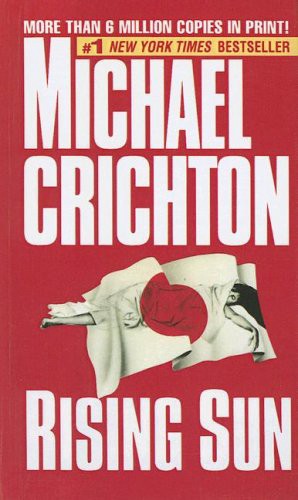
A red hot thriller that blends a murder mystery with corporate espionage, this one is tough to place because it?s one of Crichton?s most effective plots, couched in a political and social narrative that doesn?t hold up .
To crack open Rising Sun in 2018 is to see a smart, ambitious, patriotic Baby Boomer who is worried about the newly globalized economy. It?s a reminder of a time when Ross Perot was on TV with pie charts about the trade deficit and quips about a ?giant sucking sound? coming from Mexico.
Rising Sun was a blockbuster #1 bestseller and became a hit movie starring Wesley Snipes and Sean Connery, but it is largely forgotten because its plot relies so heavily on an almost paranoid view of the rise of Japanese business that now feels quaint and misplaced.
Had I made this list in 1994 I would have put Rising Sun in the top tier of Crichton books ? the plot really is explosive and riveting. But time hasn?t been kind to this one. A couple decades out, it?s clear that the big message Crichton wanted to convey in this one missed the mark.
10. The Terminal Man (1972)
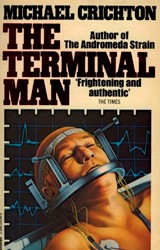
An experimental procedure to put electrodes in a man?s brain creates a psychopath in a kind of technothriller precursor to the stories of James Patterson and Thomas Harris. This one is short and fast, and gives us our first glimpse of techniques Crichton would use so effectively in his blockbuster novels of the nineties.
9. Prey (2002)
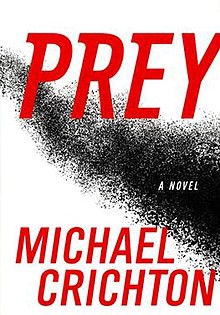
The book that taught us all about nanotech when nanotech was a brand new thing, Prey has all the elements of Crichton?s best work. An explosive plot, a science fiction flair that is just believable enough to set the story in the present, and a terrifying idea rooted in Crichton?s favorite themes about the hubris of scientists on the cutting edge.
The worst thing I can say about Prey is that Crichton did all of this better in other novels. But as a standard Crichton technothriller, Prey holds up, and is a good one to put on your shelf if you?ve already read the top novels on this list and are eager for more.
8. Timeline (1999)
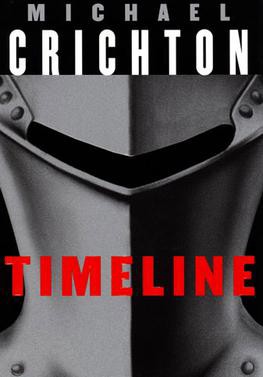
A novel that starts out like it?s going to be a barnburner about the science of multiple universes, relativity, and time travel morphs into an adventure novel set in medieval France with jousting and clashing swords.
The most compelling part of this novel is the historical research. In Timeline, Crichton is comfortable fudging all the theoretical physics to make the time travel story possible, but once his characters are in the past, every detail of what they find in medieval France, from the food to the clothes to the housekeeping to the weaponry, is meticulously researched. Readers who enjoy a good history lesson will love Timeline, but those who are only interested in a classic Crichton technothriller may be disappointed.
7. Congo (1980)
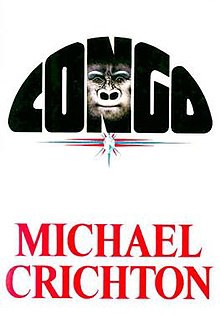
Imagine if Edgar Rice Burroughs wrote a thriller that was dense with research about gorillas, diamond mining, and military history.
Congo was turned into a terrible movie, the plot sounds silly if you try to explain it ? it?s the kind of novel serious readers probably aren?t supposed to like ? but I unapologetically love this story about highly trained gorillas working in tandem with scientists to explore valuable secrets deep in the Congo.
Earthquakes, cannibals, volcanoes, killer hippos?I had a ball reading this in high school, and when I read it again a few years ago I found it just as fun.
6. Airframe (1996)
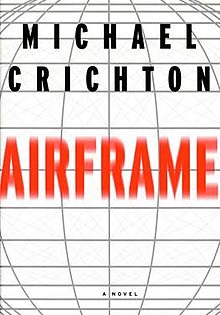
On its face, this novel has no right to be a red hot thriller (a corporate thriller about cover-ups in the airline industry?) but the big ideas Crichton explores in this one blend so seamlessly with the plot that every page is interesting, and the story builds incredible momentum as the press and a PR firm war for control over a narrative.
Whereas Rising Sun is the corporate thriller that exploded onto the scene only to fizzle out over time, Airframe is the Crichton novel that felt tame in the 90s only to grow in relevance and prescience over time.
Like another corporate thriller still to come on this list, Airframe is Crichton warning us that our colleges are producing business leaders who are high on hubris and low on practical experience, and the consequences of putting them in charge of complex systems are dire.
5. The Great Train Robbery (1975)
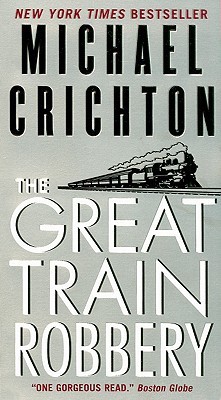
Now we?re into the really good stuff. Every novel from here on out is a blistering pageturner from the man who invented the modern thriller. Every novel from here to the end of the countdown gets my unreserved recommendation. The Great Train Robbery is the kind of novel we sometimes get from our most talented writers when they?re young. Playful, enthusiastic, and earnest, this is a classic heist story.
Maybe ?caper? is a better word than heist for this one. You can practically hear the silent movie music playing in the background as you read.
Like all Crichton novels, this one is meticulously researched, and you will come out of it with broad knowledge of life in Victorian London and how the rise of the railroads changed Europe.
4. Sphere (1987)
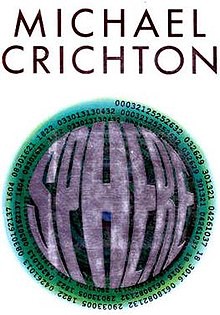
An alien vessel is discovered in the Pacific Ocean and a team of scientists are charged with going inside and checking it out.
From that simple plot Crichton mines his most terrifying story, one that anticipates much of where science fiction and horror would go over the next decade. The idea of an alien hive mind, of untapped potential of the human mind, all of it mixed with lessons on quantum physics, relativity, and black holes, in a plot with terrifying monsters and psychological suspense?all the great sci-fi creations of the nineties, from the Borg to The Matrix, play in a sandbox Crichton created here.
3. Disclosure (1994)
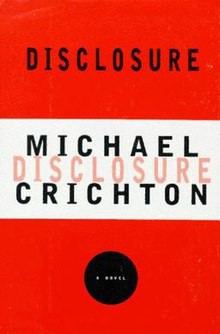
Forget what you think you know about this novel. The movie adaptation starring Michael Douglas and Demi Moore played up the sexual politics angle of the story, turning Disclosure into yet another Michael Douglas Tangles With a Beautiful Psycho movie from the 90s (completing an unholy trinity of similar movies with Fatal Attraction and Basic Instinct).
That?s not what this novel is at all.
Disclosure is a corporate thriller about a manager at a tech company who cares deeply about the company and its customers, and risks everything to keep company leadership from following the lead of an arrogant, self-important MBA.
It is, in short, the story of American business in the 1990s.
As far as Crichton novels go, the stakes are low in Disclosure and the science fiction is sparse (virtual reality, which was cutting edge in 1994, is as futuristic as this novel gets). Crichton simply gives his protagonist a mystery to solve and we get to watch him navigate a cutthroat world of backstabbing, alliance-forming, and secret-keeping.
Strangely, it?s in this novel, one of the few Crichton works that makes no attempt to predict the future, that Crichton sees the future most clearly. Disclosure is a novel that predicts both the Enron travesty and the British Petroleum disaster. It foresees the Volkswagen emissions scandal and the Facebook data breach. In Disclosure, Crichton was warning us that American business was making a mistake in prioritizing the ideas of Stanford MBA?s over real experience on the factory floor, and in the novel?s villain, he drew a perfect picture of the polished, verbose phony of the sort who, a decade and a half later, would crash the American housing market and bring the global economy to its knees.
2. The Andromeda Strain
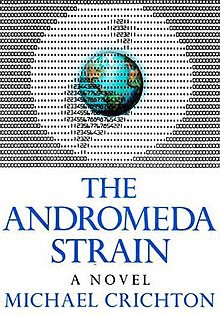
The novel that invented the technothriller and the medical thriller, while also ushering in ten years of bestsellers about deadly plagues, all in one tight and shockingly smart manuscript.
The Andromeda Strain has all the thrilling elements we?ve come to expect from Crichton?s best novels, as well as one feature that makes it stand alone: this novel, more so than any of Crichton?s sci-fi thrillers, is terrifyingly real.
Crichton?s understanding of the science of microbiology, of the spread of disease, of when medical protocol is required and when it fails, all adds up to make a story about a deadly extraterrestrial microbe into one that feels urgent and real. Even today this novel?s feeling of a race against time with all of humanity at stake makes for a terrifying read that few thriller writers have ever matched.
The science in this one is dense but fascinating. The writing is clean, tight, and inventive. This is the novel that launched Michael Crichton?s career, and it remains one of his best.
- Jurassic Park
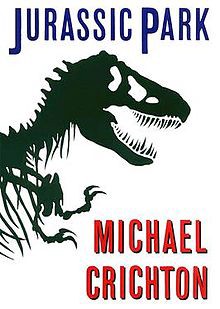
It?s tempting to put the kingpin of Crichton novels lower on the list just because of the way Hollywood sanitized it over the course of five movies (or is it 6? I?ve lost track).
But those of us who read Jurassic Park when it came out can attest that this novel is much more than the goofy echo Hollywood has created. Jurassic Park was a bomb dropped in the middle of the bookstore when it came out, a juggernaut that we all were talking about because how could you not?
How could you not talk about a story where the author made you believe, as in genuinely believe with hard science, that dinosaurs were coming back?
To read Jurassic Park today is to watch Crichton at the absolute peak of his powers. The interplay between fascinating explanations of genetics and horrifying scenes of humanity tangling with superpredators was orders of magnitude more fun than anything else in the bookstore when it came out (or on TV, or in the movie theater).
But what really makes this novel work, and stand the test of time, is Ian Malcolm, who is far and away the best character Crichton ever created. A mathematician with a wry sense of humor and a bemused attitude towards even the most outrageous turn of events, Malcolm was both Crichton?s mouthpiece in the story and the keystone that allows the whole tower to stand. Crichton?s insistence on teaching science, history, and math to his readers as he goes has always been a thorny problem for him to solve in the narrative, and he?s never solved it as elegantly as he did with Malcolm, who is the kind of character that readers are happy to see every time he appears.
Jurassic Park is also the most visceral and successful realization of the singular message Crichton went back to again and again in his work, that reality is much messier and more complicated than we think it is, and that every human disaster can be traced back to some arrogant fool who underestimated the risks inherent in a complex system.
It?s also, like Crichton always is at his best, terrifying, hysterical, tightly written, and a ton of fun.
Spencer Baum is the author of 7 novels. The audiobook of his newest novel is being released as a free podcast. Watch the video below to learn more.
The Tetradome Run is a free audiobook podcast that is fully scored with movie quality music and sound. Play the video to hear a sample.
